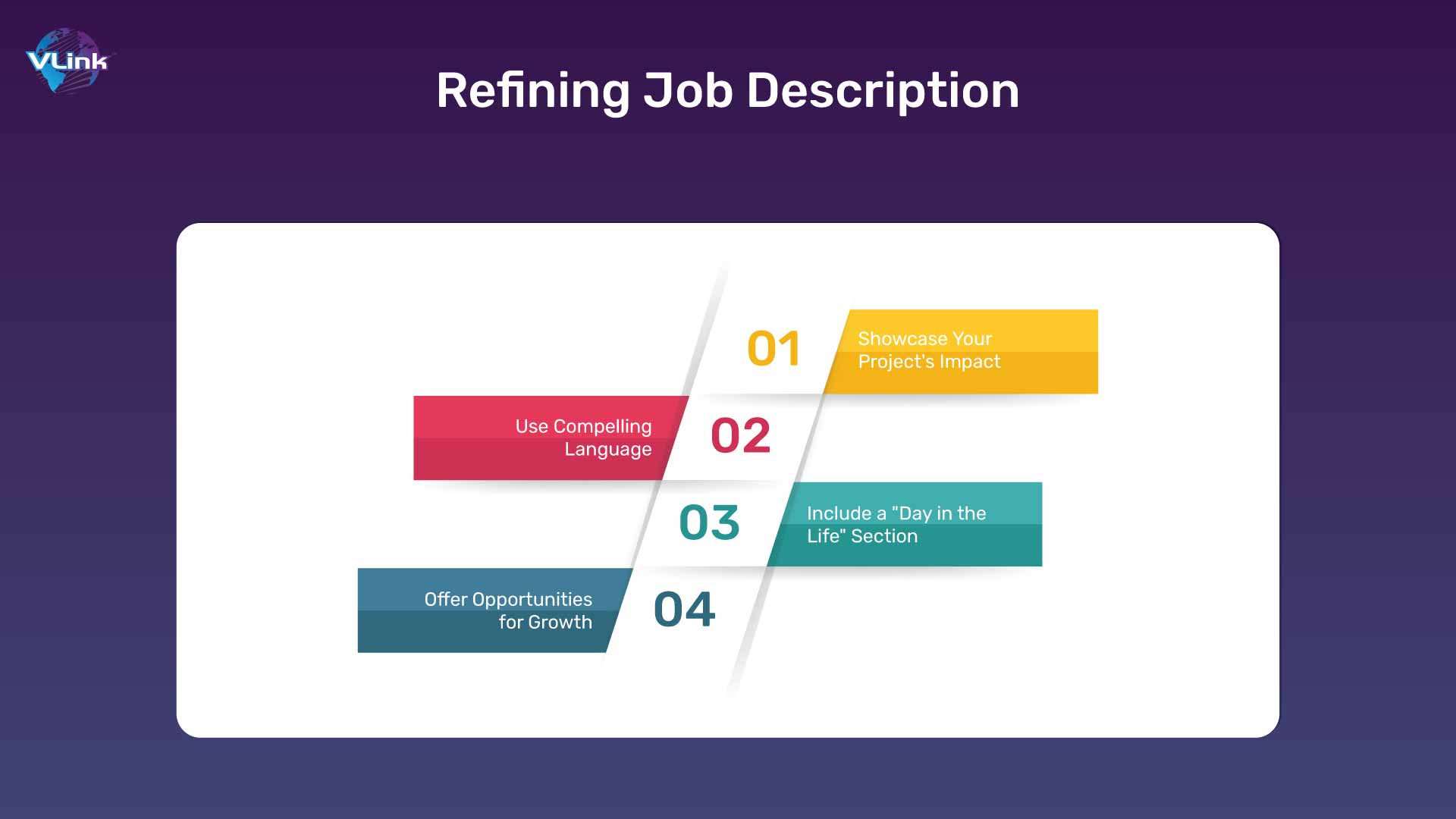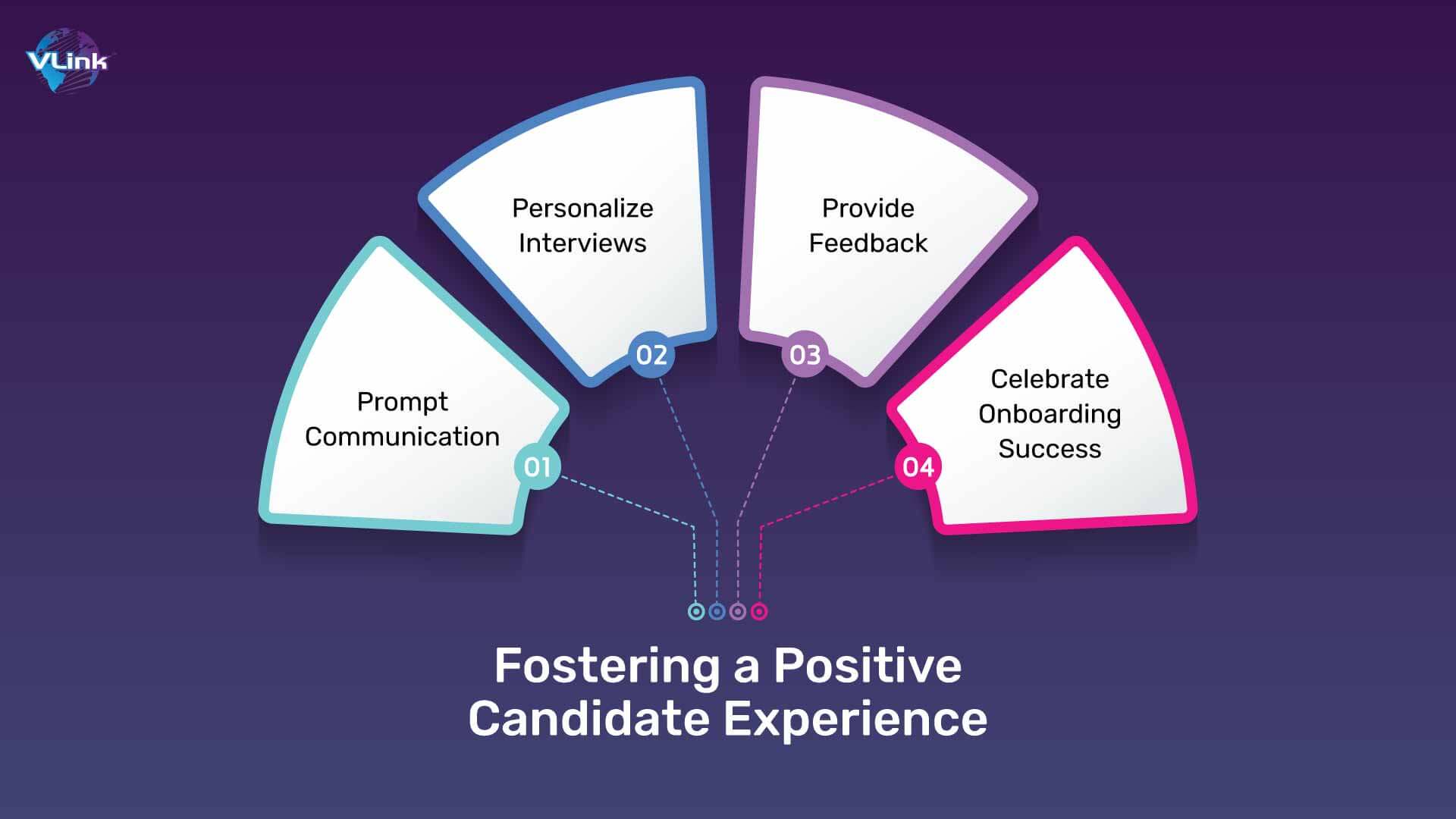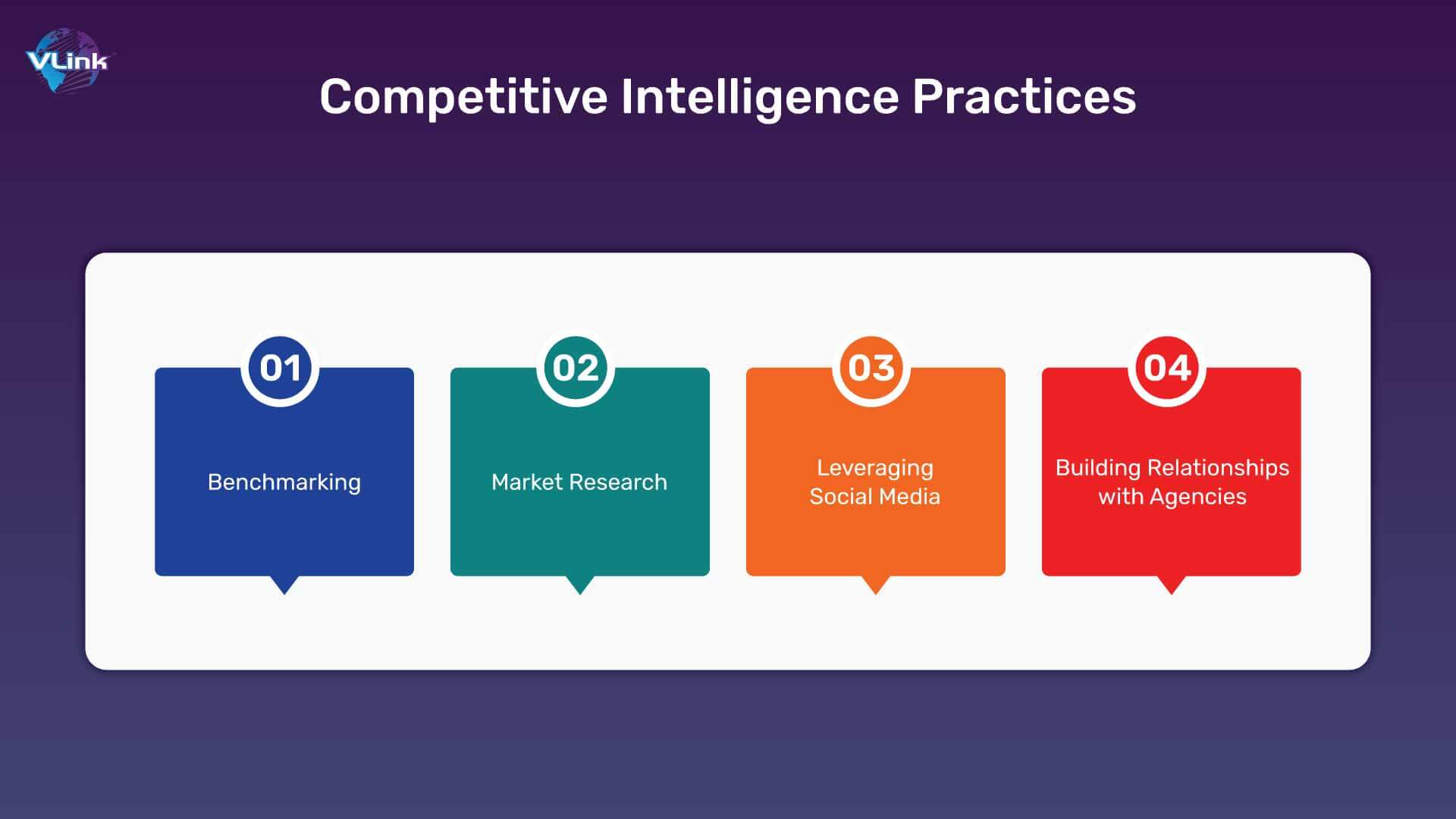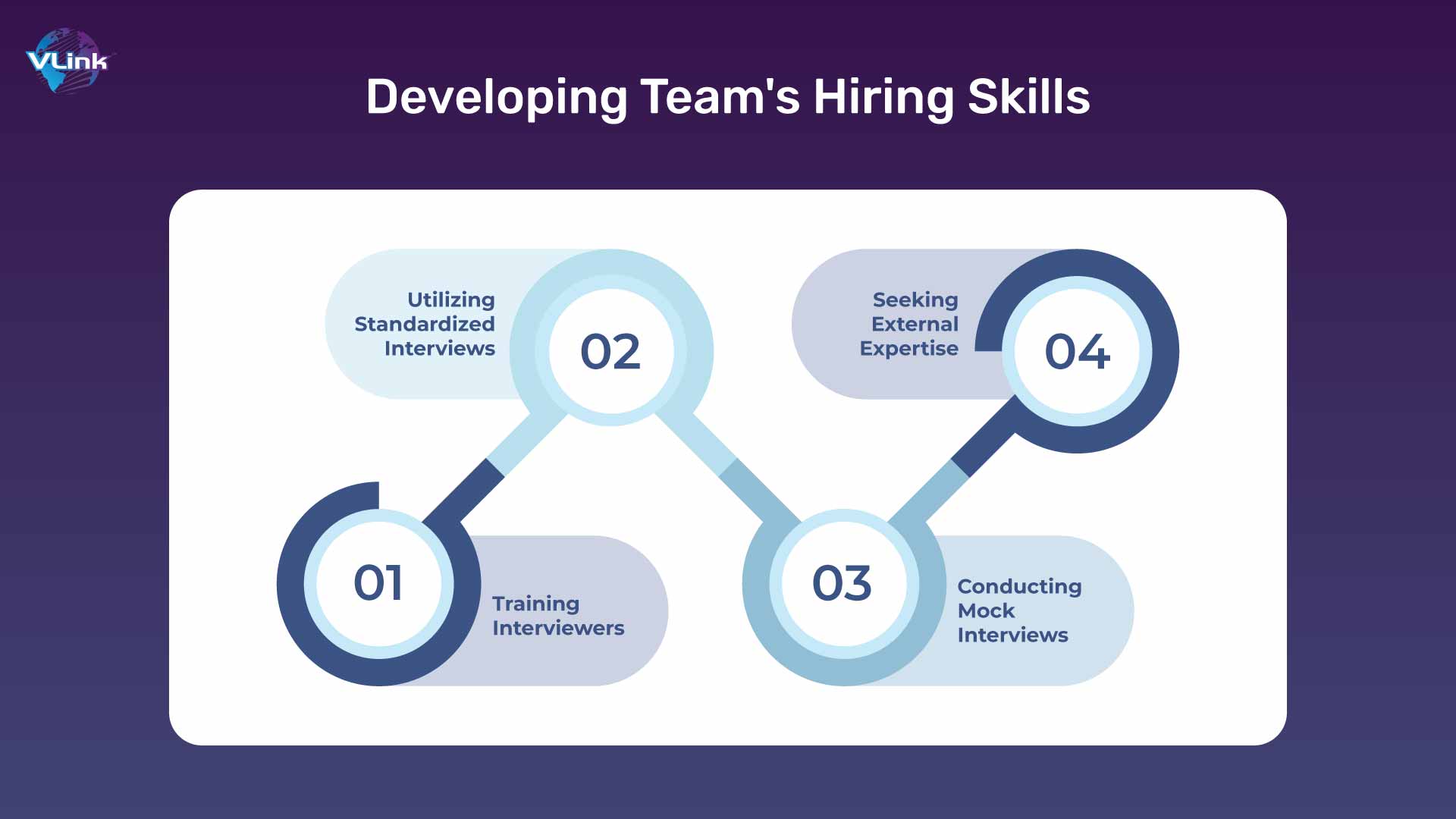In today's digitally driven landscape, finding skilled .NET developers is crucial for businesses aiming to build robust and scalable software applications. The versatility of the .NET framework, encompassing technologies like C#, ASP.NET, and Azure, empowers developers to create applications across various platforms, catering to diverse needs.
However, hiring the ideal .NET developer can be complex. This comprehensive guide goes beyond the basics, providing essential tips and tricks to navigate the hiring process efficiently and land the perfect candidate who will become a valuable asset to your team.
Let’s start!
Refining Job Description

1. Showcase Your Project's Impact:
Beyond outlining responsibilities, highlight the project's potential impact on your business or the broader community. This helps candidates understand the significance of their work and fosters a sense of purpose and contribution.
2. Use Compelling Language:
Craft your job description using engaging language that resonates with .NET developers. Utilize action verbs like "design," "build," and "implement" to emphasize the dynamic nature of the role and excite potential applicants.
3. Include a "Day in the Life" Section:
Glimpse the typical workday of a .NET developer in your organization. This transparency allows candidates to envision themselves in the role and assess their suitability for the daily tasks and responsibilities.
4. Offer Opportunities for Growth:
Mention potential career paths and growth opportunities within the organization. This demonstrates your commitment to the professional development of your employees and attracts ambitious individuals seeking to build their careers in your company.
Note: Consider collaborating with current .NET developers on your dedicated team to craft the job description. Their insights and experiences can ensure the report accurately reflects the day-to-day work, skills required, and culture within your team.
READ MORE: Top 7 Reasons to Hire Developers from a Dot NET Development Outsourcing Company
Building a Robust Screening Process
1. Pre-screening Questions:
Utilize a questionnaire to filter out unqualified candidates and streamline your selection process. Focus on fundamental skills and experience relevant to the specific role, allowing you to identify suitable individuals for further evaluation.
2. Technical Assessment Tools:
Consider incorporating online coding challenges or technical assessment tools to objectively gauge a candidate's problem-solving abilities and coding proficiency. These tools can be beneficial when evaluating a large pool of applicants initially.
3. Portfolio Reviews:
Encourage candidates to showcase their work on platforms like GitHub. Reviewing personal projects, open-source contributions, and code repositories provides valuable insights into their coding style, technical depth, and problem-solving approach.
READ MORE: How to build a CI/CD pipeline with GitHub Actions
4. Behavioral Interviewing Techniques:
Employ behavioral interviewing techniques to assess a candidate's past behavior and predict future performance. Ask specific questions like "Tell me about a time you faced a technical challenge" or "How do you handle a conflict with a colleague?" These inquiries reveal valuable insights into their problem-solving skills, communication abilities, and work ethic.
Note: Implement a skills matrix outlining essential skills and experience levels required for the role. Use this matrix to evaluate candidates against predetermined criteria during the screening process objectively.
READ MORE: Hire a Dedicated Team of Remote .Net Developers?
Fostering a Positive Candidate Experience

1. Prompt Communication:
Maintain prompt and transparent communication throughout the entire process. Inform candidates about the status of their application, even if it's a rejection. This demonstrates respect for their time and effort and builds your company's brand reputation.
2. Personalize Interviews:
Tailor your interview questions to the specific candidate's experience and the project requirements. This demonstrates genuine interest in their unique skills and qualifications, contributing to a more engaging and personalized interview experience.
3. Provide Feedback:
Offer constructive feedback to unsuccessful candidates. This valuable input helps them improve their applications and interview skills for future opportunities, fostering goodwill and maintaining a positive connection with potential prospective hires.
4. Celebrate Onboarding Success:
Celebrate the successful onboarding of your new developer. Welcome them with a warm team environment, provide comprehensive training, and involve them in meaningful projects. This positive onboarding experience sets the tone for a successful and rewarding long-term relationship.
Addressing Additional Challenges
1. Remote Hiring:
With the increasing popularity of remote work, be prepared to adapt your hiring process for remote candidates. Utilize video conferencing platforms for interviews, establish clear communication protocols, and leverage collaboration tools to ensure seamless integration into the team.
2. Diversity and Inclusion:
Prioritize diversity and inclusion throughout hiring. Utilize diverse hiring teams, avoid biased language in job descriptions, and implement inclusive interview practices. It opens the talent pool to a broader range of qualified individuals and fosters a more vibrant and innovative team dynamic.
3. Staying Up to Date:
The .NET ecosystem undergoes constant evolution. It's crucial to stay updated on the latest trends, technologies, and frameworks within the .NET world. This allows you to refine your search criteria, hire developers with in-demand skills, and equip your team to build future-proof solutions.
4. Retaining Top Talent:
Retaining your skilled .NET developers is equally important as attracting them. Continuously foster a culture of learning and growth, create an environment that values their contributions, and offer competitive compensation and benefits packages to retain your top talent.
READ MORE: Hire Dot NET Developers in the United States
Competitive Intelligence Practices

1. Benchmarking:
Research your competitors in the market to understand their hiring practices and the compensation packages they offer. This knowledge equips you to craft competitive salary structures and benefits packages to attract top talent and stand out in the hiring pool.
2. Market Research:
Stay informed about industry trends in .NET developer salaries, skill demands, and career paths. Utilize resources like salary reports and industry publications to gain insights into the current landscape and tailor your hiring strategy accordingly.
3. Leveraging Social Media:
Actively engage with relevant .NET communities and professional groups on platforms like LinkedIn and Twitter. Post job openings, share valuable resources related to .NET development, and participate in discussions to build brand awareness and establish yourself as a thought leader in the .NET space.
4. Building Relationships with Agencies:
Consider partnering with specialized talent acquisition agencies focusing on placing .NET developers. These agencies have established networks within the developer community and can help connect you with qualified candidates seeking new opportunities.
READ MORE: Hire Dot Net Developers at Fixed Cost, Hourly or Monthly
Building a Strong Employer Brand
1. Employer Branding Initiatives:
Build a strong employer brand to attract and retain top talent. This involves showcasing your company culture, employee testimonials, and career growth opportunities on your website, social media platforms, and professional networking sites.
2. Employee Engagement:
Encourage your current .NET developers to become brand ambassadors. Encourage them to share positive experiences on online forums and review platforms, contributing to a positive employer reputation and attracting like-minded individuals.
3. Participating in Industry Events:
Attend relevant .NET conferences, workshops, and meetups to network with potential candidates and demonstrate your commitment to staying at the forefront of the .NET ecosystem. This allows you to build valuable connections, gain insights into emerging talent, and showcase your company as a desirable employer.
4. Building a Talent Pipeline:
Consider establishing partnerships with universities and coding boot camps that offer .NET-related programs. This lets you connect with aspiring developers early on, provide internship opportunities, and build a talent pipeline for future recruitment needs.
READ MORE: Hire Dot Net Developers Remotely in 48 hours
Developing Team's Hiring Skills

1. Training Interviewers:
Equip your current team members involved in the interview process with proper training. This could include sessions on unbiased interviewing practices, evaluating technical skills effectively, and conducting behavioral interviews.
2. Utilizing Standardized Interviews:
Implement standardized interview questions and evaluation rubrics to ensure consistency and fairness throughout the hiring process. This helps eliminate bias and lets you objectively compare candidates based on predetermined criteria.
3. Conducting Mock Interviews:
Facilitate mock interview sessions for candidates who have progressed through the initial stages of the process. This allows them to practice their interview skills, receive constructive feedback, and feel more prepared for the final interview.
4. Seeking External Expertise:
Consider collaborating with external talent acquisition consultants or recruitment specialists who can offer valuable guidance and expertise throughout the hiring process. This extra support can be beneficial, especially during high-volume recruitment or seeking specific skill sets.
By adopting these comprehensive strategies and continuously refining your hiring approach, you can navigate the competitive .NET developer landscape effectively, attract top talent, and build a successful team that drives innovation and growth for your organization.
READ MORE: Hire Full Stack Dot Net Developer with Zero Day Exit policy
Additional insights and resources
As we've explored various strategies and considerations, this concluding section offers additional insights and resources to empower you to hire exceptional .NET developers.
- Staying Ahead of the Curve:
- Continuous Learning: The field of .NET development continuously evolves with new technologies, frameworks, and best practices emerging regularly. Encourage your team to constantly learn by participating in online courses, attending conferences, and staying updated with industry publications.
- Invest in Skill Development: Consider investing in professional development opportunities for your .NET developers. This could include sponsoring their certifications, offering training programs on emerging technologies, or providing access to online learning materials.
- AI-powered tools: Explore how AI-powered talent acquisition tools can enhance your hiring process. These tools can help you identify qualified candidates based on specific skills and experience, streamline the interview scheduling process, and provide valuable insights during the evaluation phase.
2. Leveraging Community Resources:
- Participate in Online Forums: Actively engage in online forums and communities dedicated to .NET development. Share valuable insights, answer questions from aspiring developers, and build your company's reputation as a thought leader within the community.
- Contribute to Open-Source Projects: Encourage your team to participate in open-source projects related to the .NET ecosystem. This contributes to the development of the technology and showcases their skills and expertise to a broader audience, potentially attracting potential recruits familiar with their work.
- Host Workshops or Meetups: Consider hosting workshops or meetups focused on .NET development at your company. This allows you to share knowledge with the broader community, attract skilled individuals, and network with potential candidates seeking similar learning opportunities.
That’s it from our side in this blog. Follow the above-mentioned tips & tricks to hire ideal Dot Net Developers.
Conclusion
Hiring the right .NET developer requires a strategic and multifaceted approach. By implementing the tips and tricks outlined in this comprehensive guide, you can gain a competitive edge in the talent market, attract top talent, and build a successful development team that fuels innovation and drives your organization's vision forward.
Remember, fostering a positive, growth-oriented work environment is critical to retaining your valued employees and ensuring a thriving team within the ever-evolving world of .NET development.
Frequently Asked Questions
Technical expertise: C#, ASP.NET, Entity Framework, and familiarity with other relevant technologies like .NET Core, Azure, and cloud computing.
Problem-solving and critical thinking: Ability to analyze complex problems, design efficient solutions, and troubleshoot issues effectively.
Teamwork and adaptability: Ability to work effectively in a team environment and adapt to new technologies and project changes.
Compelling job description: Highlight the unique aspects of the role, company culture, and opportunities for professional growth.
Offer benefits: Research market salaries for .NET developers with similar experience and tailor your offer accordingly.
Work environment: Emphasize opportunities for learning, development, and a healthy work-life balance.
Company culture: Utilize social media and employer branding initiatives to showcase your company culture and attract candidates.
Technical interviews: Design technical interviews that assess the candidate's knowledge of core .NET concepts, problem-solving abilities, and coding skills.
Portfolio review: Ask candidates to share their portfolio of past projects to understand their experience and expertise in building .NET applications.
Reference checks: Contact the candidate's previous employers or colleagues to gain insights into their work ethic, skills, and fit for your company culture.














